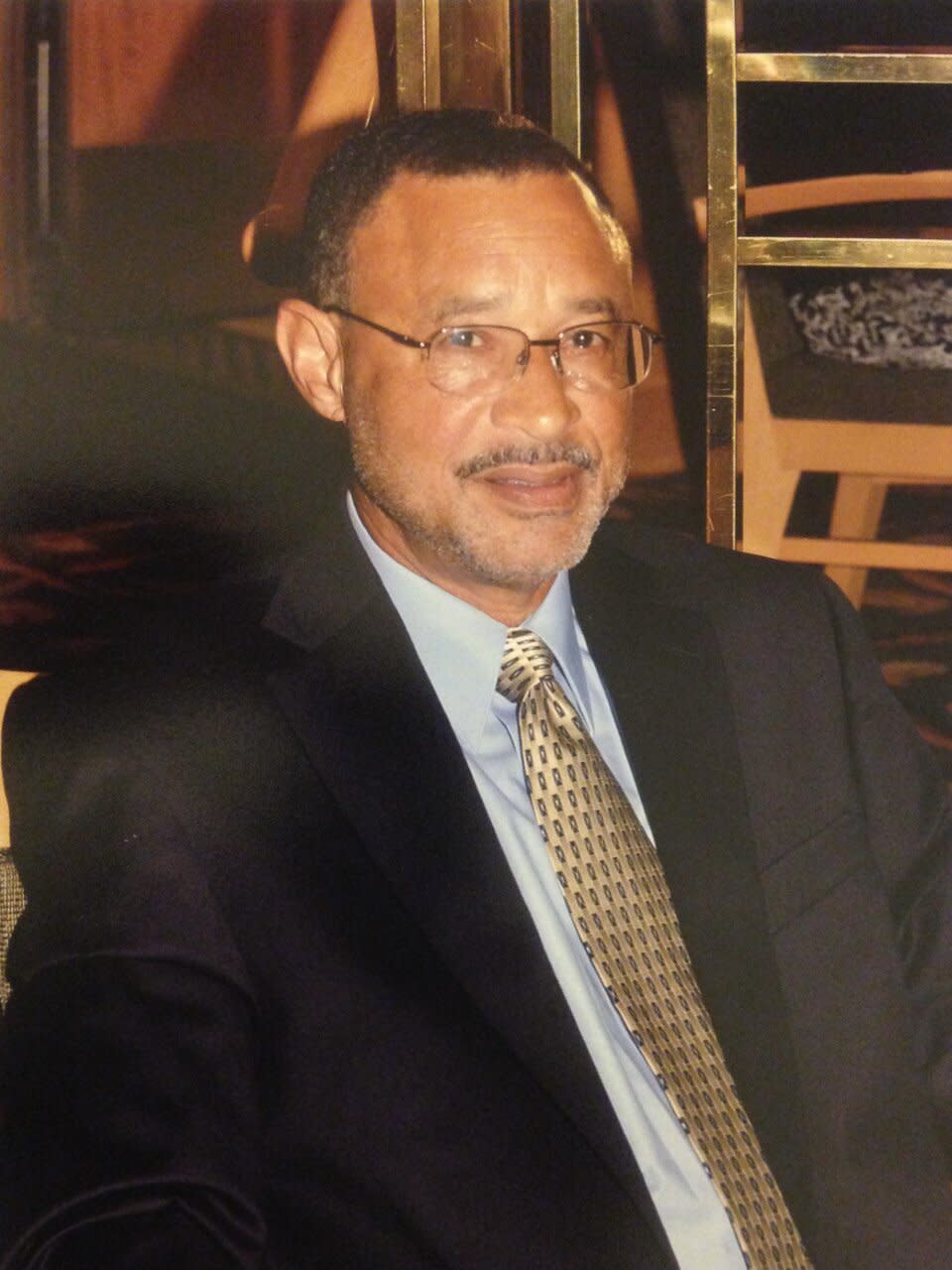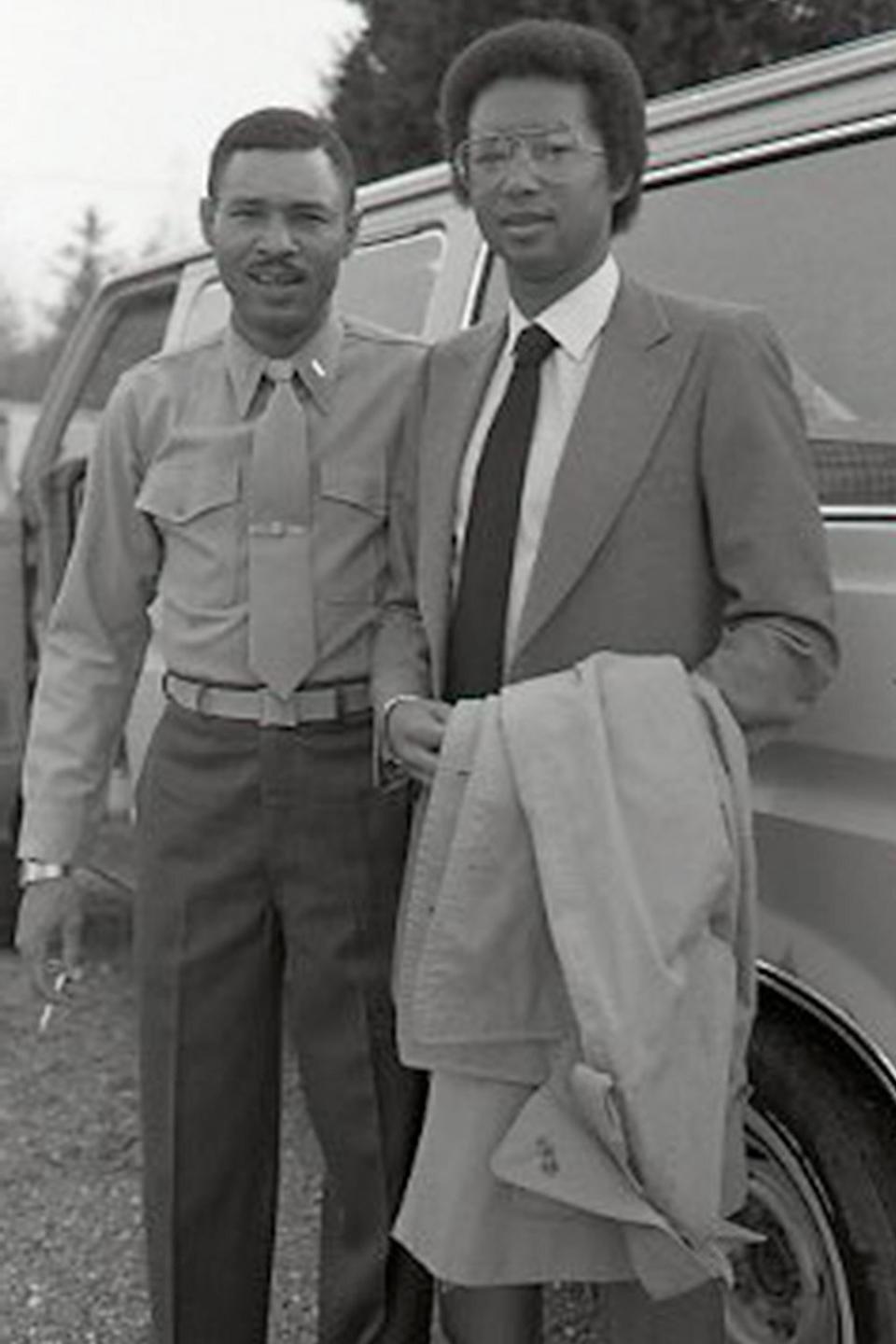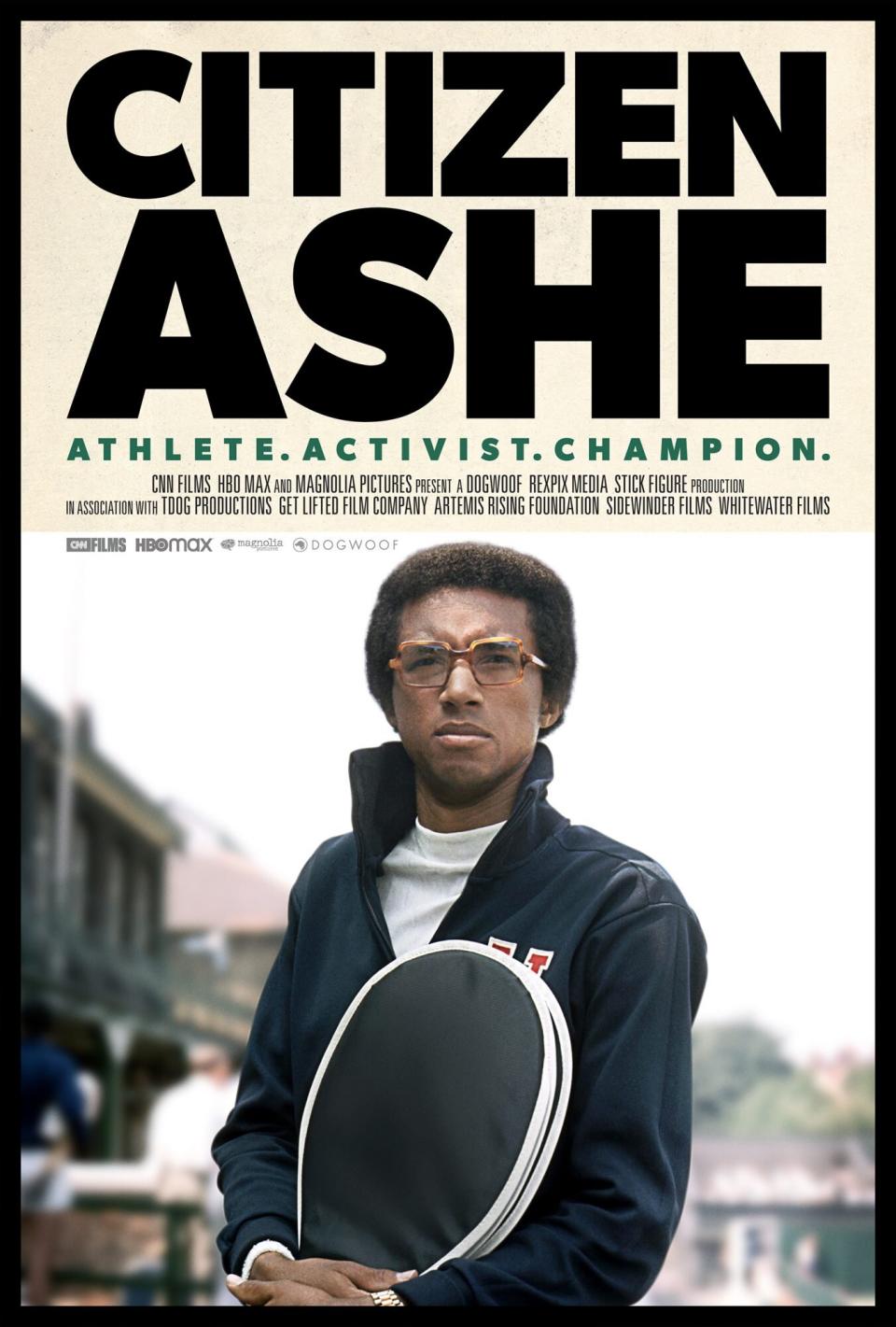Arthur Ashe's Brother Johnnie Says Doc About Tennis Icon Explores How He Succeeded 'on His Terms'

Courtesy of Luchia Ashe Johnnie Ashe
Almost three decades after Arthur Ashe's death, his brother Johnnie Ashe can still see the impact the tennis icon made on the sports world.
"He realized that he had a responsibility to be the best that he could be, no matter what the circumstances, but he wanted to do it on his terms," Johnnie tells PEOPLE. "And quite frankly, I think that's a lesson in itself. Be the best that you can be, but do it on your terms."
Arthur was the only Black man to ever win the men's singles title at Wimbledon, the US Open, and the Australian Open. He was elected to the International Tennis Hall of Fame in 1985. His success on the court, and his activism throughout his life, are the focus of a new documantary called Citizen Ashe. Johnnie is one of several people from Arthur's life that's interviewed as part of the film from Magnolia Pictures, HBO Max and CNN Films.
Arthur and Johnnie were raised in Virginia by their father Arthur Ashe Sr. The siblings' mother died when Johnnie was just 18 months old, and Arthur was five. The circumstances, Johnnie says, lead to the brothers being "always close."

Jeanne Moutoussamy-Ashe Arthur and Johnny Ashe
"Prior to my mother dying, she made [my dad] promise that he would bring us up and we wouldn't get farmed out to the aunts, the uncles, or the grandparents," recounts Johnnie. "We were poor, but he exposed us to as much as he possibly could."
RELATED: Arthur Ashe's Life, Legacy Explored in New Documentary Trailer: 'Origin Story of a Social Activist'
As Arthur rose through the ranks on the tennis circuit, Johnnie enlisted in the Marines at only 17. He later re-enlisted in hopes of preventing Arthur from being drafted to fight in the Vietnam War, eventually serving 20 years and retiring as a captain. It was an easy sacrifice to make, he says now.
"We're talking the period between '66 and '68," recounts Johnnie. "There was a lot going on in America's history at that point and the history of the United States at that point. Catastrophic things happened to people and to families. Martin Luther King Jr. [was assassinated], the Kennedys [were assassinated], there were riots, there were all sorts of things going on and I just tell people, once I thought about it, I said to myself, 'Hey, he doesn't need to be in Vietnam.' "

Magnolia Pictures and CNN Films Citizen Ashe
Johnnie says that he's lived his life willing to sacrifice for others, especially his loved ones. It's the way his father raised him and Arthur.
"Arthur was one of those individuals who, by virtue of the way he lived his life, he showed us the way," says Johnnie, noting that Arthur's integrity and intellect will be clear to viewers of Citizen Ashe.
RELATED: Emma Raducanu Asks for Patience as She Rises in Women's Tennis Circuit: 'I Am Learning a lot'
The film, which will also document Arthur's diagnosis with HIV and eventual death in 1993, highlights the many lessons the Ashe men learned and imparted through their respective careers and relationships.
"[Our father] always taught us to try to do the right thing for the right reason," explains Johnnie. "And with the caveat that it would make a difference to somebody 100 years from the day. And coming from a man who never had real education except for life, there's a lot of wisdom in that."
Citizen Ashe will be shown in theatres in New York and Los Angeles on Dec. 3 and 10.

 Yahoo Movies
Yahoo Movies 
